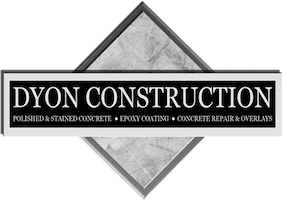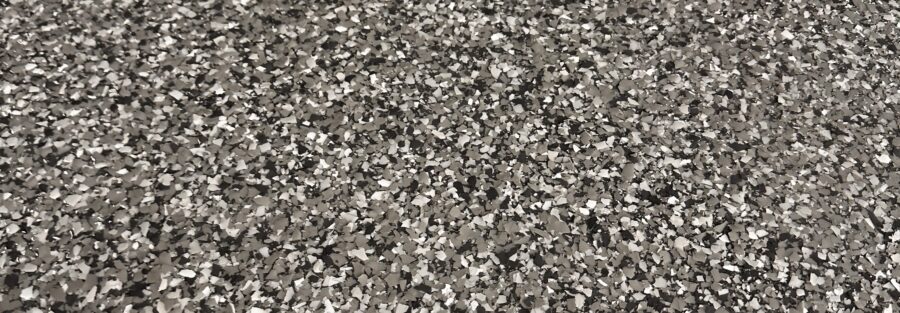A garage floor does more than just support vehicles—it’s a foundation for functionality and a canvas for aesthetics. Choosing the right coating can protect this essential surface while enhancing its appearance and longevity. Among the most popular options, epoxy and polyurea coatings stand out for their unique benefits. Deciding between them requires a thorough understanding of their properties, advantages, and ideal applications. This guide delves into these two contenders, highlighting the key differences to help you make an informed choice for your garage.
What Are Epoxy Coatings?
Epoxy coatings are a tried-and-true solution for garage floors, prized for their durability and versatility. Comprising a combination of resin and hardener, epoxy creates a tough, adhesive bond with the concrete surface, forming a protective layer that resists wear and tear.
Overview of Epoxy Coatings
Epoxy coatings are well-known for their seamless and glossy finish. They come in a variety of colors and styles, allowing homeowners to customize their garage floors to suit their aesthetic preferences. Options such as solid colors, decorative flakes, and metallic finishes make epoxy a versatile choice for both residential and commercial spaces.
When applied, epoxy undergoes a chemical reaction that cures the material into a hardened surface. This process ensures a durable, long-lasting floor that can withstand the rigors of daily use.
Benefits of Epoxy Coatings
- Durability: Epoxy floors are highly resistant to abrasions, impacts, and heavy loads, making them ideal for garages that house vehicles or heavy equipment.
- Chemical Resistance: Epoxy coatings repel oil, gasoline, and other chemicals, preventing stains and damage.
- Aesthetic Versatility: With customizable designs, epoxy can elevate the appearance of a garage, transforming it into a sleek and polished space.
- Cost-Effectiveness: Epoxy is an affordable flooring option compared to other coatings, offering excellent value for its longevity.
While epoxy is a robust choice, it does have limitations, such as susceptibility to UV discoloration and a slower curing time compared to other materials. However, its reliability and affordability keep it at the forefront of garage flooring solutions.
What Are Polyurea Coatings?
Polyurea coatings are a newer and increasingly popular alternative to epoxy, offering enhanced performance and flexibility. Originally developed for industrial applications, polyurea has gained traction in residential settings due to its superior properties.
Overview of Polyurea Coatings
Polyurea is a type of elastomer derived from the reaction between an isocyanate compound and a resin blend. This chemistry results in an incredibly strong and flexible coating that adheres tightly to concrete surfaces. Polyurea coatings are applied in multiple layers, typically including a primer, base coat, and topcoat, to create a highly durable and seamless finish.
What sets polyurea apart is its rapid curing time and extreme durability. These properties make it particularly appealing for projects requiring quick turnaround and resistance to harsh conditions.
Benefits of Polyurea Coatings
- Rapid Curing Time: Polyurea sets within hours, significantly faster than epoxy, allowing for quicker project completion and minimal downtime.
- UV Resistance: Unlike epoxy, polyurea resists yellowing and fading when exposed to sunlight, maintaining its appearance over time.
- Flexibility: Polyurea’s elasticity enables it to adapt to the expansion and contraction of the concrete beneath, reducing the risk of cracking.
- Chemical and Abrasion Resistance: It offers superior resistance to harsh chemicals and physical wear, making it suitable for heavy-duty environments.
- Temperature Versatility: Polyurea can be applied in extreme temperatures, ranging from sub-zero to scorching heat, ensuring reliable performance in any climate.
Though polyurea coatings are more expensive than epoxy, their exceptional durability and quick application make them a worthwhile investment for high-performance garage flooring.
Key Differences Between Epoxy and Polyurea Coatings
When comparing epoxy and polyurea coatings, several critical factors come into play. Understanding these differences can help you determine which material is better suited to your specific needs.
Durability and Flexibility
- Epoxy: While durable, epoxy coatings can become brittle over time, particularly in high-traffic or heavy-load environments. They are less forgiving when it comes to concrete movement, which may lead to cracking in extreme conditions.
- Polyurea: Polyurea’s inherent flexibility allows it to absorb impacts and adapt to structural shifts without cracking. Its superior durability makes it better equipped for heavy-duty and high-traffic applications.
Curing Time
- Epoxy: Epoxy coatings require a longer curing process, typically taking several days to fully set. This extended timeframe can result in significant downtime during installation.
- Polyurea: Polyurea coatings cure in just a few hours, allowing for same-day use in many cases. This rapid curing time is a major advantage for projects with tight schedules.
UV Resistance
- Epoxy: One of epoxy’s drawbacks is its susceptibility to UV rays, which can cause discoloration and yellowing over time. This makes it less suitable for spaces exposed to sunlight.
- Polyurea: Polyurea’s UV resistance ensures it retains its color and finish even under prolonged sunlight exposure, making it ideal for garages with natural light or outdoor-facing areas.
Best Uses for Each Material
- Epoxy: Epoxy coatings are best suited for garages with moderate traffic, where cost-effectiveness and aesthetic customization are priorities. They are a reliable choice for homeowners seeking an affordable, attractive, and durable floor.
- Polyurea: Polyurea is the preferred option for high-traffic garages, industrial settings, or spaces requiring quick installation. Its resilience and adaptability make it the superior choice for environments with heavy equipment or exposure to sunlight and chemicals.
Helping You Decide: Which Coating Is Right for Your Garage?
The decision between epoxy and polyurea ultimately depends on your specific needs and priorities. Consider the following:
- Budget: If affordability is your primary concern, epoxy offers a cost-effective solution with excellent durability and customization options.
- Durability Needs: For garages with heavy use or harsh conditions, polyurea provides unmatched resilience and longevity.
- Time Constraints: If a quick turnaround is essential, polyurea’s rapid curing time is a clear advantage.
- Aesthetic Preferences: Both coatings offer customizable designs, but epoxy provides a broader range of decorative options at a lower cost.
- UV Exposure: If your garage is exposed to sunlight, polyurea’s UV resistance ensures a longer-lasting and visually appealing finish.
By weighing these factors, you can determine which coating aligns with your garage’s requirements and your personal preferences.
Ready to enhance your garage with the perfect floor coating? Contact our team of experts today to explore your options and transform your space with durable, high-performance epoxy or polyurea coatings!

